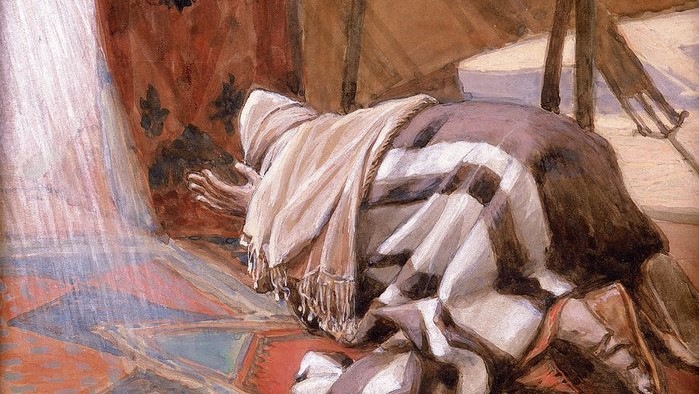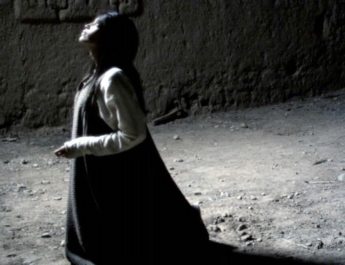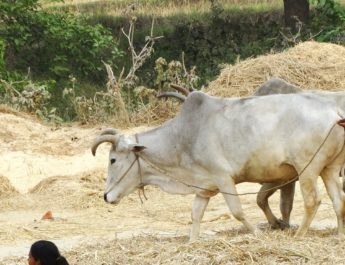Genesis 12:1-4a
Lent A15
1 Now the LordA said to Abram,B “GoC from your country and your kindredD and your father’s house to the land that I will show you.
2 I will make of you a great nation,E and I will blessF you, and make your nameG great, so that you will be a blessing.H
3 I will bless those who bless you, and the one who cursesI you I will curse;J and in you all the familiesK of the earth shall be blessed.”
4 So Abram went,L as the Lord had told him; and LotM went with him. Abram was seventy-five years old when he departed from Haran.N
Image Credit: “God’s Promises to Abram” by James Tissot, between circa 1896 and 1902.




